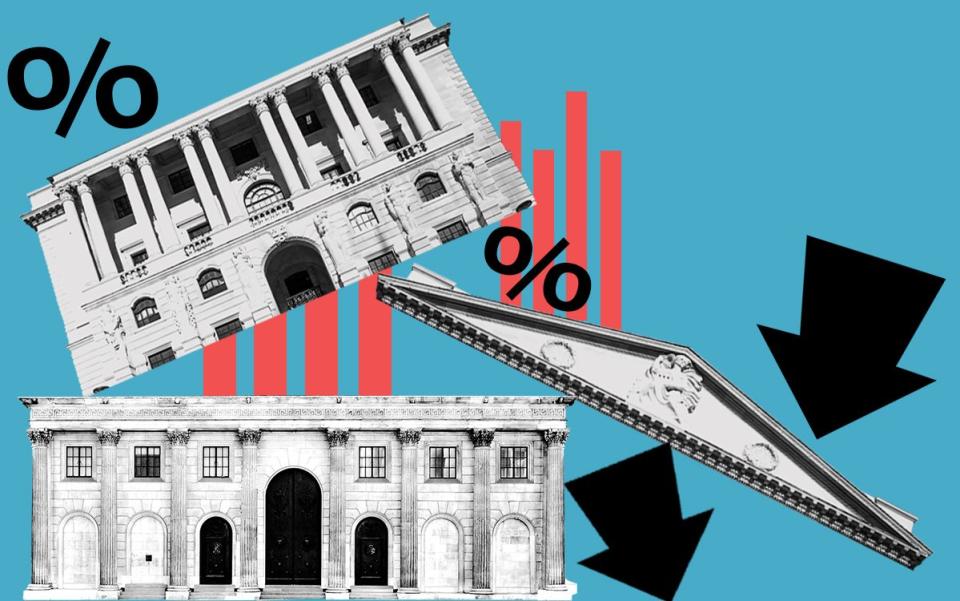Bank of England ‘to inject £100bn’ to fight second wave

The Bank of England is poised to unveil a £100bn bond buying spree to fight the second Covid wave as the country goes into another national lockdown.
Rate-setters will pump billions of pounds more into the economy by expanding the Bank’s quantitative easing programme at its meeting on Thursday as fears of a double-dip recession intensify, economists have predicted.
However, analysts at HSBC warned the vast bond-buying operations are “running out of room”, increasing the odds of the Bank turning to controversial negative interest rates as a winter chill descends on the economy.
The £100bn expected increase in bond purchases, also known as money printing, will lift the Bank’s balance sheet of government and corporate debt to a record £845bn.

Live economic signals tracked by City forecasters indicate that the second wave has derailed the UK’s recovery as tougher restrictions become more widespread.
A Jefferies gauge using job listings, road congestion, electricity usage and web traffic indicated the UK economy started to retreat again last week as cases rocketed. Europe has seen economic activity shrink for the past three weeks, its analysts said.
Ruth Gregory, economist at Capital Economics, warned another UK-wide lockdown would “cause GDP to shrink again, perhaps significantly in the fourth quarter”.
Fears of a double dip downturn came as experts predicted the high street will be hit hardest this Christmas by the new Covid measures. The national lockdown is expected to cause high street footfall to drop by as much as 80pc, matching the decline at the peak of the crisis in April, Springboard warned, with non-essential stores being forced to shut for a month.
Economies enjoyed a brisk recovery in the third quarter after record collapses in output during the first half of 2020. However, ING said a double dip downturn across much of Europe is now “unavoidable” as infections spiral out of control and countries including the UK return to national lockdowns.
Central bank war chests have been depleted by the first lockdown, making them less able to fight another downturn. Economists warned the Bank of England’s QE programme – which lowers borrowing costs, boosts asset prices and pushes investors into riskier investments – is losing its potency as it mulls negative interest rates to battle the economic fallout of the pandemic.
Robert Wood, the Bank of America economist, warned “the monetary cupboard is bare” as more money printing “delivers little extra stimulus at this stage”. He predicted negative rates will be the Bank’s “default tool soon” despite worries over the policy’s side effects.
Surging Covid cases set up a bleak winter for the economy and high street as the crucial festive period nears.
High streets and shopping centres are expected to suffer most with a predicted decline of 40.5pc and 37.4pc between Nov 22 and Dec 26 respectively, even if non-essential retailers are allowed to reopen in December.
Names including Cath Kidston, Debenhams, TM Lewin and Monsoon Accessorise have fallen into administration since March, while others such as Marks & Spencer and John Lewis have culled jobs.

